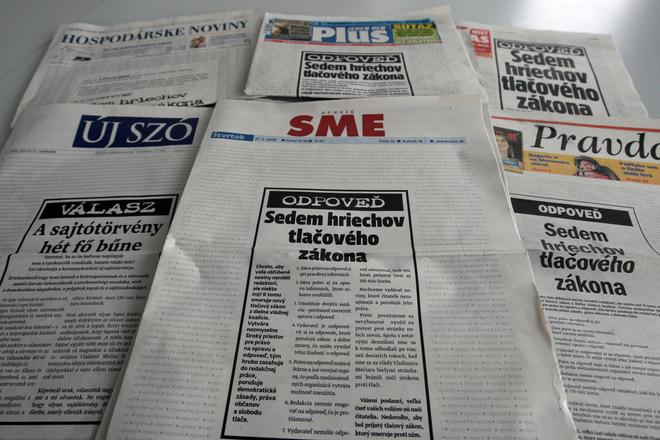On May 27, 2008, Slovakia’s major daily newspapers were published with a white front page and a short text about “Seven Sins of the Press Code”.
The blank cover pages were a protest against plans by the then-government coalition led by Prime Minister Robert Fico’s Smer party to adopt a new Press Code, in particular part of the legislation concerning the right of correction and reply which, in their opinion, would have a serious effect on how reporters work and restrict press freedom.
Although the law was passed, it was changed in 2011 with a new centre-right government led by Iveta Radičová removing politicians’ right of reply.
Now Smer is trying again and an amendment put forward by the party, and backed by its coalition partner, which would see the right of reply for politicians reinstated could be passed at the current session.
But the move has been attacked by lawyers, journalists and press freedom watchdogs at home and abroad.
“The amendment is not a response to any relevant social need,” Tomáš Kamenec of the Paul Q law firm told The Slovak Spectator.

People are more concerned about corruption, the lack of justice and politicians’ scandals. The reintroduction of the right of reply for politicians is of interest to only a very small group of people, he added.
“This draft Press Code amendment cannot bring anything positive to Slovakia,” Kamenec stressed.


 The right of reply was problematic also back in 2008. (source: SME archive)
The right of reply was problematic also back in 2008. (source: SME archive)